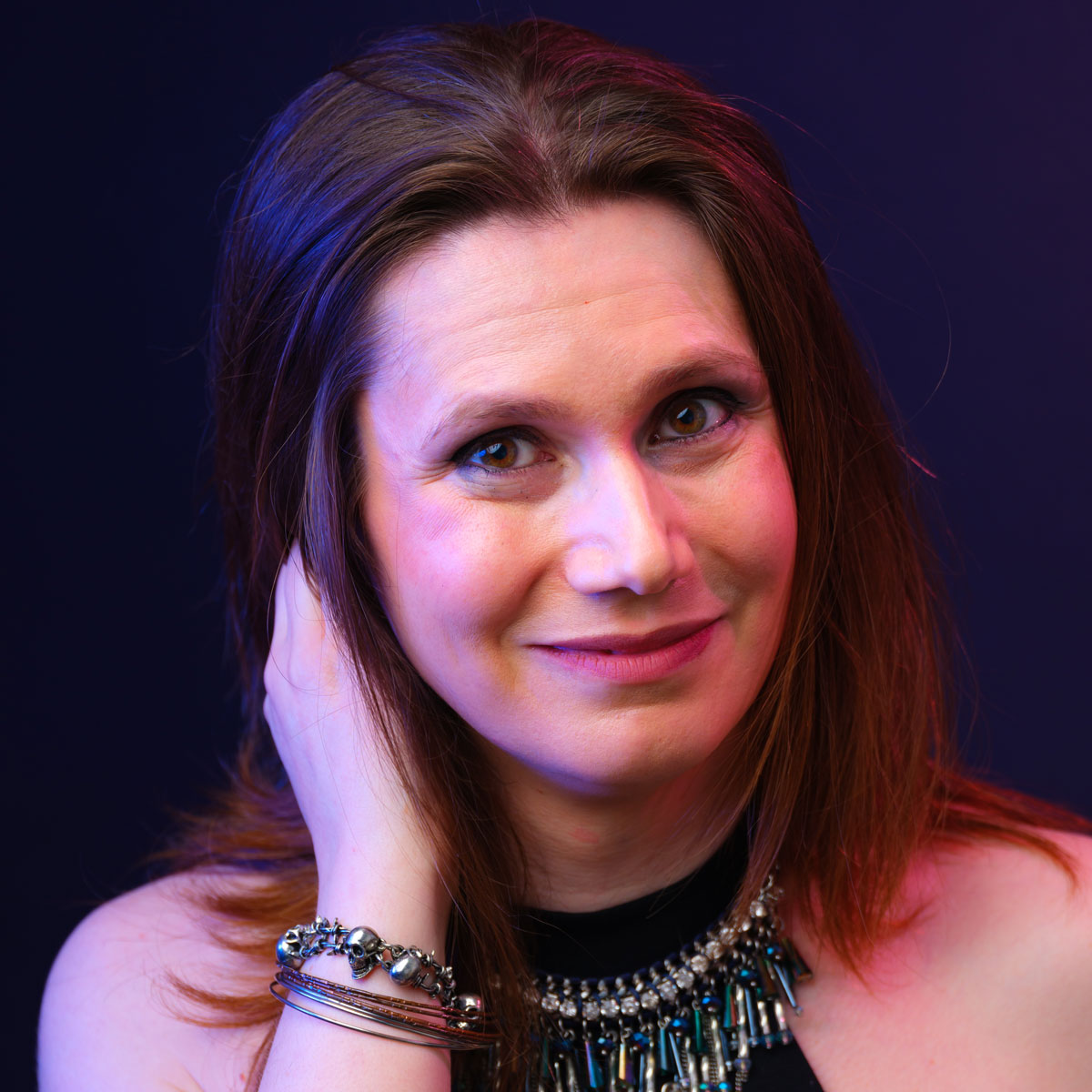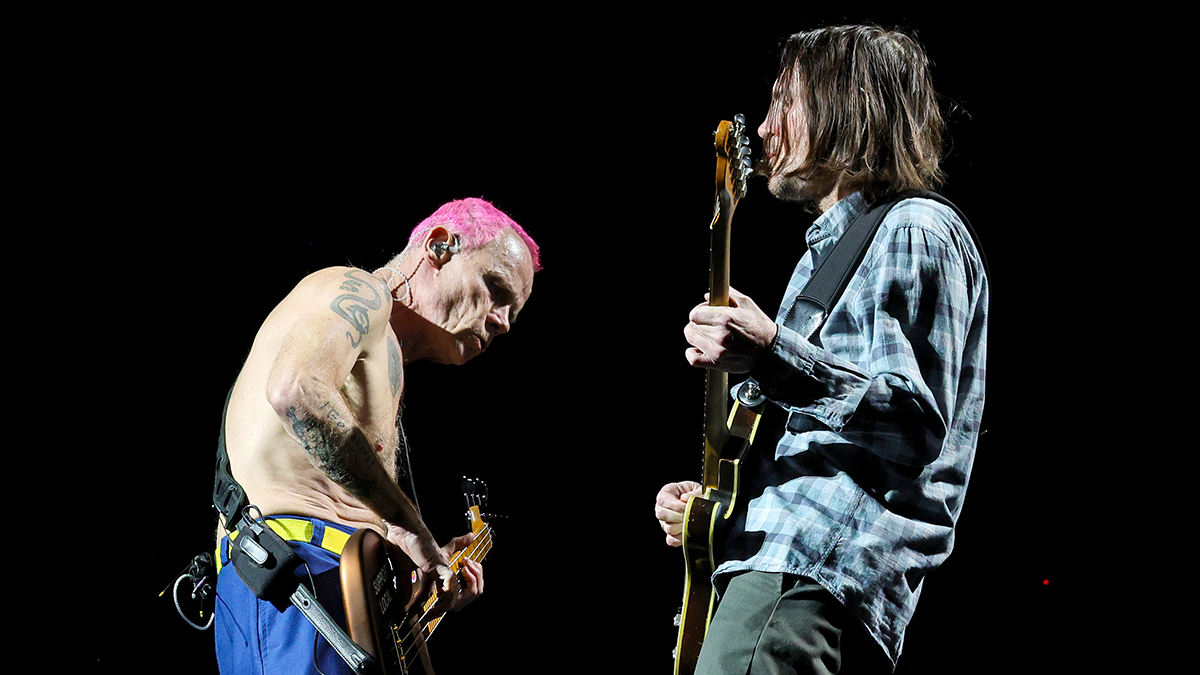Slash: “When I play fast, it really is an energy thing. I would actually like to tone it back sometimes, but I get so taken away!”
Slash on making his new album with Myles Kennedy and the Conspirators in just five days, that elusive Guns N’ Roses chemistry, and why he doesn't always feel the need for speed when it comes to guitar
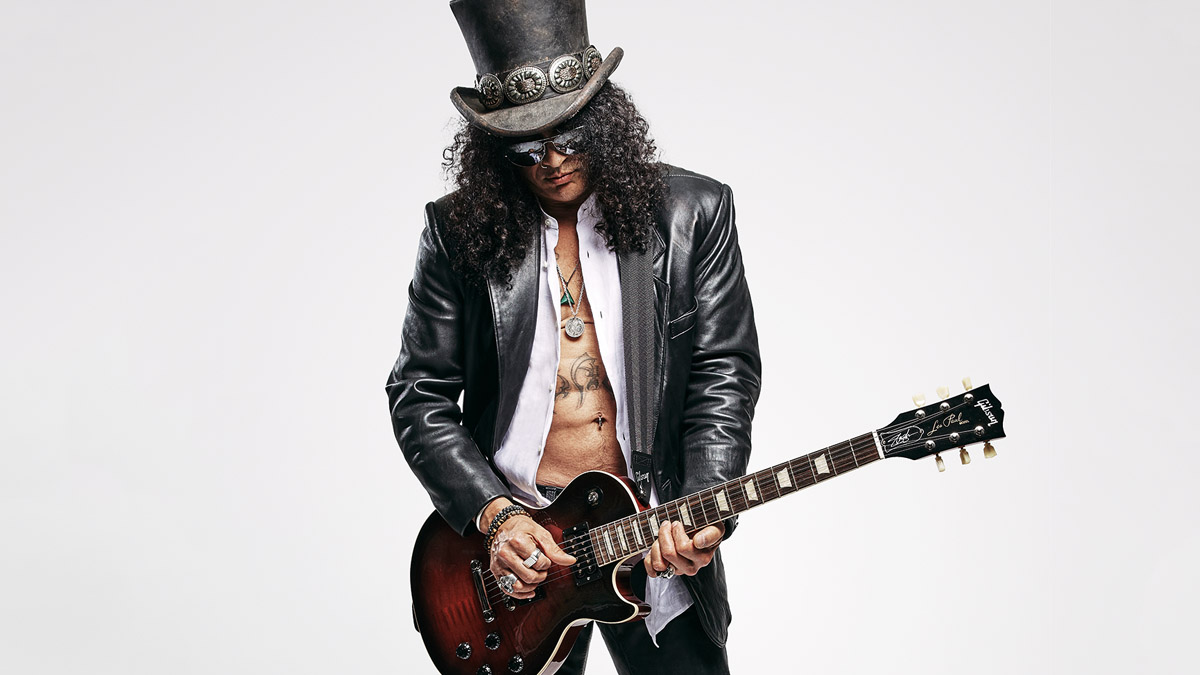
All the latest guitar news, interviews, lessons, reviews, deals and more, direct to your inbox!
You are now subscribed
Your newsletter sign-up was successful
He was just 21 when Guns N’ Roses’ debut album Appetite For Destruction was released - the record that made him famous as a guitar hero. And all these years later, as Slash speaks to Total Guitar via a Zoom call from his home in LA, it’s evident that his love of rock ’n’ roll is as strong as it’s ever been.
When he talks about 4, the new album from Slash featuring Myles Kennedy and The Conspirators, he’s thrilled about how it turned out, with an energy created from having the whole group playing together in the studio.
“Recording live is something I’ve always wanted to do,” he says. And when he talks about how things are working out in Guns N’ Roses – seven years since he and bassist Duff McKagan reconciled with singer Axl Rose and rejoined the band – he says he couldn’t be happier.
4 is also the first release on Gibson Records, a fitting honour for a player who has been synonymous with the Les Paul since Appetite For Destruction defined Guns N’ Roses as the greatest rock band of the late 80s.
In that era, when hard rock music was getting increasingly slick and safe, GN’R sounded genuinely dangerous. Slash’s lead playing had a grind that over-polished shredders couldn’t touch, but his melodic hooks in Sweet Child O’ Mine and Paradise City were irresistible. 35 years and 30-million sales later, it’s quite probably the greatest rock debut of all time.
After exiting from Guns N’ Roses in 1995, Slash found success second time around in the 2000s with the supergroup Velvet Revolver, co-starring Duff McKagan, ex-GN’R drummer Matt Sorum and former Stone Temple Pilots frontman Scott Weiland. And again, it was thanks in no small part to more unforgettable Slash melodies on hits songs such as Slither and Fall To Pieces that Velvet Revolver became a multi-platinum act.
In the wake of that band’s break-up, Slash’s self-titled 2010 solo album saw him collaborating with an array of superstar vocalists including Ozzy Osbourne, Motörhead’s Lemmy and the Black Eyed Peas’ Fergie. But it was his chemistry with Alter Bridge singer Myles Kennedy that really turned heads, and soon they coalesced into Slash featuring Myles Kennedy and The Conspirators.
All the latest guitar news, interviews, lessons, reviews, deals and more, direct to your inbox!
This is now the most stable group line-up of the guitarist’s career, and his commitment to this project is such that he never considered giving it up when the Guns N’ Roses reunion happened. He just has to juggle the two as best he can – and right now, he admits, “it’s pretty busy”.
GN’R’s latest tour wrapped in October 2021 and there are more dates this summer, including massive outdoor shows in London and throughout Europe. A new EP was released in February featuring Hard Skool, one of two recently released tracks originally recorded during Slash and Duff’s absence for the 2008 album Chinese Democracy but re-recorded with the current line-up. They have also begun working on a new album – the first since Chinese Democracy, and the first with Slash and Duff since the covers album, The Spaghetti Incident?, in 1993.
I’d be lying if I said I don’t feel the pressure in this age of technical expression and fluidity...
With so much riding on a new Guns N’ Roses album, this is one subject on which Slash remains tight-lipped, stating simply and diplomatically: “We put two songs out already and there’s more stuff coming.”
But for the rest of our conversation he is open, energised and passionate as he discusses his dual roles with GN’R and The Conspirators, his gear and inspirations, and this new album on which his guitar tone is possibly the cleanest and most direct he has ever recorded, revealing all the detail in his ferocious chops.
You’ve now played for longer and made more albums with this band than any other line-up. How do you feel about that?
“That’s funny! I’ve never thought about that. New milestones, right? I hooked up with these guys in 2010 and we’ve just had a great time of it. Even when I got back with Guns N’ Roses, which was a pretty monumental thing, I didn’t want to let that go. I just managed to thread the needle and keep it going.”
Apparently you recorded the album in five days?
“Yeah, it was quick. When we started looking for a producer I had a very short list of potential rock ’n’ roll guys. Dave Cobb was one of those. He’d done Rival Sons, which is a band I really like, and a bunch of really cool down-to-earth country stuff. We discussed how we liked rock ’n’ roll performed live and the energy with that.”
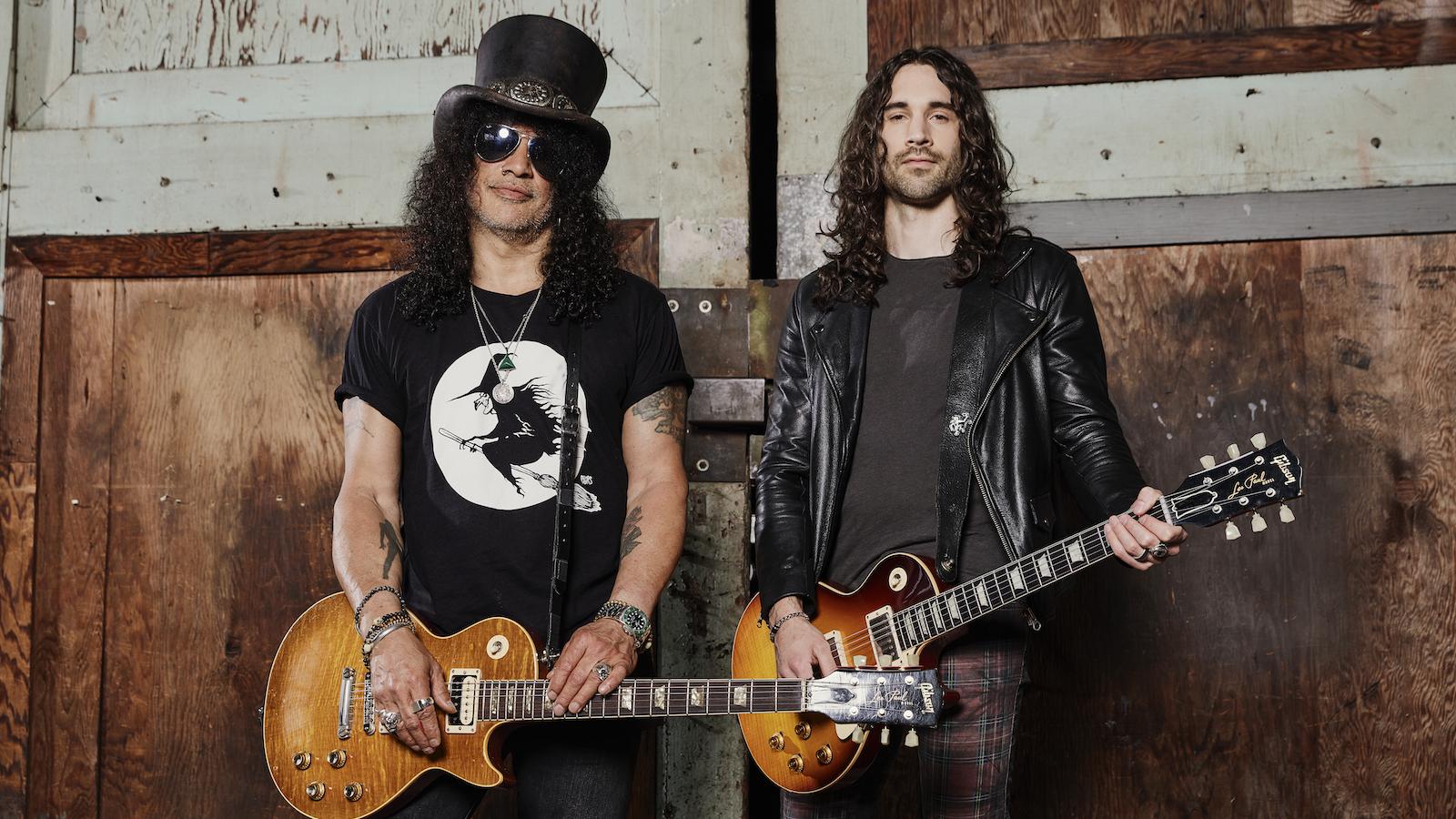
“It was like it was a meeting of minds. We went out to Nashville, set the gear up and just started playing. We did two songs a day over the course of five days and that was basically the whole record sans overdubs and background vocals. We used wedges as monitors and it was just like playing in a club. Myles was in a booth right next to us, but I could actually see him and he just sang along.
“There would be two or three takes and that was it. I think Myles thought, ‘I can always go back and redo this or that’, but then he was the first one to test positive for Covid. The vocals were great so there was no need to go back and redo them.
“One of the reasons I wanted a different producer was because Elvis [Michael ‘Elvis’ Baskette], who produced the last two Conspirators records, also did both of Myles’ solo records and all the Alter Bridge records. I didn’t want another record coming out in such close succession that had the same sound. It turned out that you couldn’t get a more different approach to vocals.”
How was this album written?
“A lot of it was written on the road in 2019, at sound checks and stuff, which is how we normally do it. When Covid happened it stalled our routine. Normally we come off the road, do some work on the songs, then get into pre-production and go back in the studio and do the record. Covid delayed all that, so I did demos of all the material that we had plus a lot of new material.
On a couple songs I used a Flying V which I love because it’s got great output but it is demonstrably cleaner than my Derrig guitar
“I did the computer drum machine kind of deal, playing them with my fingers, sent it out to Myles and he put down some vocals. Todd (Kerns) finally flew in and put bass on the demos, so that’s how the stuff came together.”
Was any of it written in the studio?
“When I do demos, all my arrangements are never completely finished. You’ll have an intro and a verse and a chorus. You might have even a middle. Whatever, it’s always open to change. When we go into pre-production we’ll jam everything out to the point where I think this is reasonably finished.
“Once we get in the studio and you’re playing the arrangement in earnest some things will change. There was a couple different things that happened. Fall Back To Earth really developed. April Fool was only three parts that really weren’t fine-tuned and Dave Cobb helped us do that.”
Your guitar tone on this record sounds a bit cleaner. Was that deliberate?
“There’s a big difference in sound when you play with the band compared to when you mic up an amp in a booth and go into the control room and dial the sound in that way. It was just a much more direct, raw approach. The sound was cleaner just because of the way that I set up, standing right in front of it.”
You don’t need as much gain because the sustain comes from the volume and closeness to the amp.
“Yeah, it’s just a different trajectory, the way that the sound is coming out and the way that you’re perceiving it. Plus on a couple songs I used a Flying V, which I love because it’s got great output but it is demonstrably cleaner than my Derrig guitar [the Appetite For Destruction Les Paul]. C’est La Vie and Actions Speak Louder Than Words were both played with the Flying V. It’s a Hendrix ’69 reissue Flying V. It’s fucking great, and it works great for the talk box.”
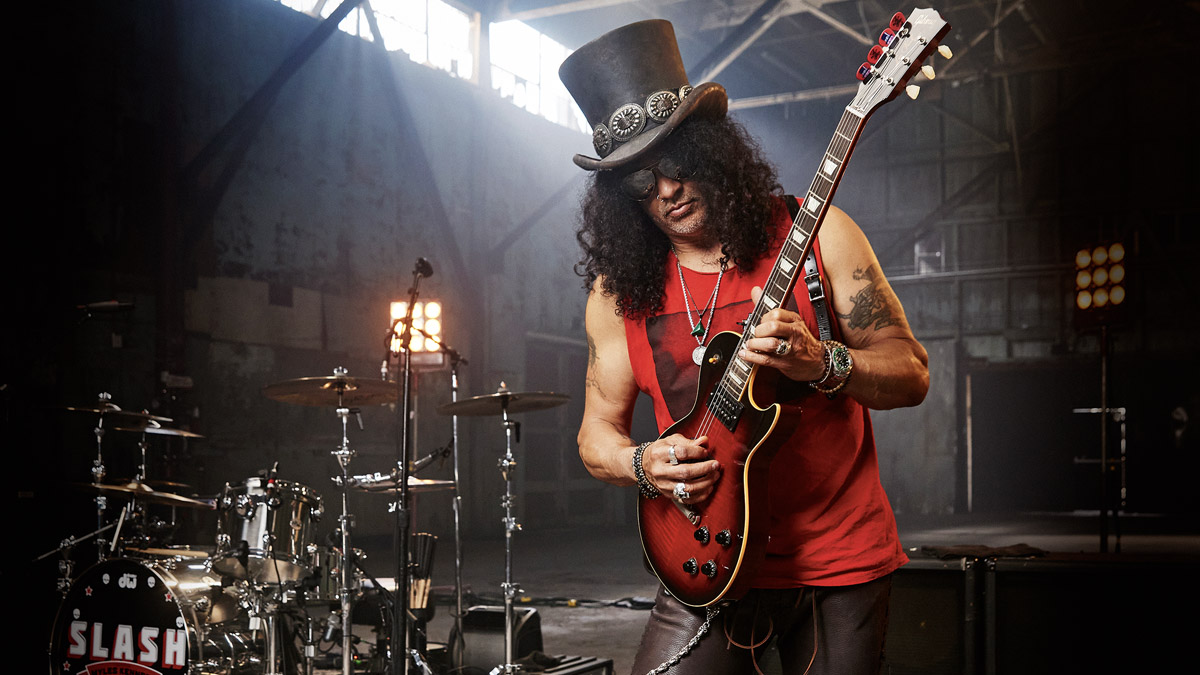
You and the talk box have a great history going back to Appetite For Destruction.
“It was fun to break it out. It was sort of an afterthought. I wrote it like on regular guitar and in pre-production it dawned on me that that riff would be great with a talk box. The first talk box I ever got was when I was about 16. A friend of mine’s mom who in a band had one in her garage, and she gave it to me.
“The first thing that I ever heard the voice box on that really stuck out to me was Peter Frampton (on Show Me The Way), and then it was Aerosmith, a live version of Walk This Way off the Live Bootleg record. I came up in an era where talk box was around. A lot of people over saturate it now, and it’s just more of a tonal effect as opposed to really enunciating with it. I definitely like a cleaner, buzzier old-school sound.”
The reverb sounds great. How did you get that?
“That was just the room! We discussed Glyn Johns and some of the records he engineered that were really live records, like Led Zeppelin II. That was basically it, going in and just setting up live in the room.”
What was the amp?
“Just a [Marshall 2555] Jubilee 100 watt into straight cab with [Celestion] Vintage 30s. I go through phases. I used the Jubilee for a long time with Guns N’ Roses and then I sort of went off it when I was working with Velvet Revolver. I went through a couple different Marshalls, and then I really came back around to Jubilees on the last tour.”
On April Fool, the two guitars play variations on the same riff, panned left and right, similar to how you used to play with rhythm guitarist Izzy Stradlin in Guns N’ Roses’ early days. How do you develop those parts?
“I’ll come up with an idea and start jamming it with the guys. Unless I have a specific part, they just make up whatever. Frank [Sidoris, Conspirators rhythm guitarist] just goes along with it in his own fashion. We don’t spend a lot of time analyzing the guitar parts as long as it works. Sometimes it inspires different ideas for syncopation, but for the most part we just start playing and people make up whatever they want until it starts to jump.”
Is that a sitar on Spirit Love?
“That was the first time I’ve had the electric sitar. I can’t remember what the brand is but I might have had it since the '90s. I’ve definitely had it since Velvet Revolver. I just never used it because the sitar has become such a cliché in rock and roll that it’s very iffy whether it’s gonna work.
“I recorded it on my Les Paul, but then I went back and overdubbed it with the sitar, through the Marshall exactly the way my guitar was set up. It sounds like the speakers are about to blow up! It was a cool sound and it doesn’t sound like the Beatles or anything.”
Is the riff on Fill My World a nod to Sweet Child O’ Mine?
“I know what you mean now that you’ve said it, but it didn’t come from that. It’s that kind of single-note riff that’s got a rotation thing to it, but it wasn’t intended to sound like anything in particular. I wasn’t sure if I was going to show it to the band because it was this ballady type thing, but I sent it to Myles and he came up with this really great melody so it became a song. The riff is a mix of open strings and fretted notes and there’s little bends in there, too.”
The album is the first release from Gibson Records. How did you hook up with them?
“I have no idea how long Gibson was thinking about starting a record company prior to us coming together for this record. I’m my own record company and I find distributors in different territories to put the record out. I was talking to my manager about who we’re going to use this time around and he mentioned Gibson wanting to do a record company.
“I had to think about it for a second because that almost sounds too good to be true. I couldn’t think of any negative side to it. I know the people at Gibson, so I know how much they put into it and how much integrity the company has. I just couldn’t go wrong doing it through Gibson. We partner on it an equal share, so we both have to work hard to make it happen. I’m actually very excited to see who else they sign.”
There’s a certain chemistry that Duff, Axl and I have that goes back to the very beginning. That’s the magic ingredient that nobody could necessarily put a finger on
Now you’re playing with Guns N’ Roses again as well as the Conspirators, do you use separate gear for each band?
“There’s definitely guitars that I use with Guns N’ Roses that I don’t use with the Conspirators because they’re signature guitars for certain Guns songs, but there’s not a conscious effort to separate the two.
“I use what I need to do the gig, so I take a lot of the same stuff out with both bands, especially effects-wise because it’s such minimal effects anyway. Jessica, my ’87 main Les Paul, I use primarily with Guns just because that’s such a Guns N’ Roses thing. I experiment with a lot of different stuff with the Conspirators.”
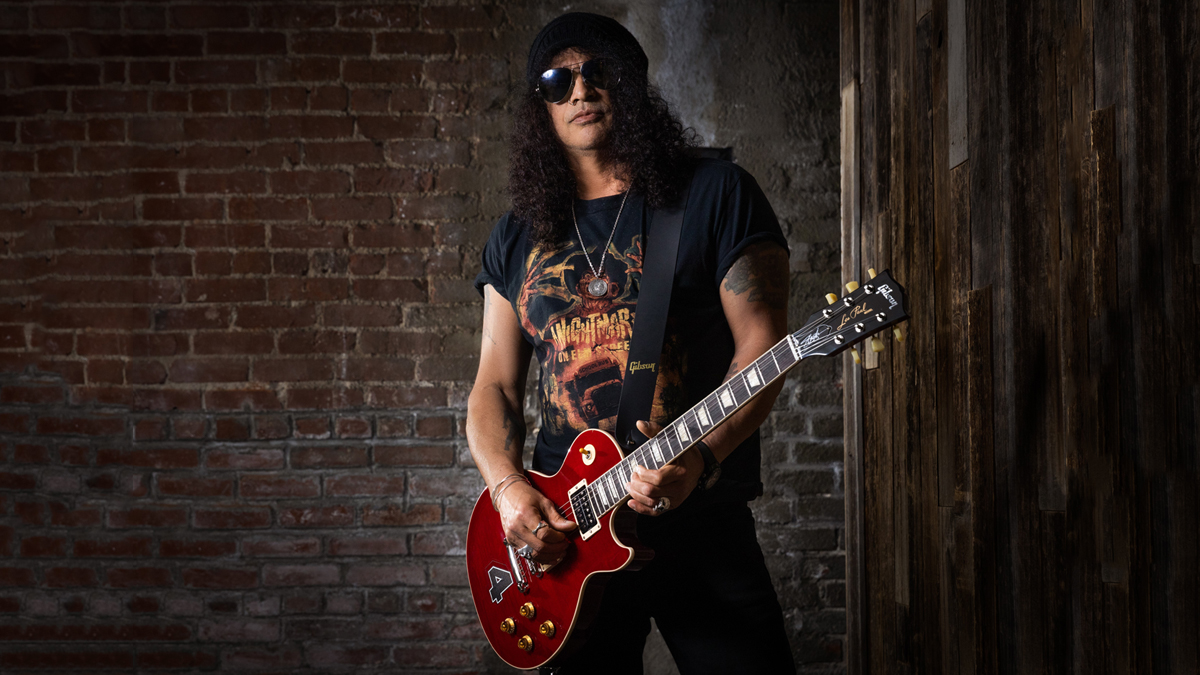
How is it different playing your old songs with Guns N’ Roses again versus playing the same songs with Conspirators?
“There’s a certain chemistry that Duff, Axl and I have that goes back to the very beginning. That’s the magic ingredient that nobody could necessarily put a finger on what it is. That happens instantly when I’m working with Guns. I have great chemistry with the Conspirators, but when we do a Guns N’ Roses song it doesn’t have that particular spark to it.
“I realised that as soon as we started rehearsing. There really is a magic that happens with that combination of people that is different than doing the same material with Myles, Todd and Brent [Fitz, drums], even though those guys do play the shit out of the Guns N’ Roses stuff.
“As soon as I rejoined Guns I didn’t have that need to play Guns stuff in the Conspirators. We only play one Guns song in the set now. I don’t know what song we’re gonna play this time around. The Conspirators holds up on its own, which is great.”
Have you put your own stamp on the Chinese Democracy parts?
“Yeah, if there’s a signature part like the hook or something, I want to be recognisable, but the way I go about playing it is probably entirely different from how the original guys played. It’s definitely my own interpretation.”
You’ve said in the past you weren’t the biggest fan of shred guitar. You can play extremely fast but you don’t sound like a shredder. Do you have any thoughts on why?
“I don’t have an issue with playing fast. When I’m talking about Eddie Van Halen or Alvin Lee, there’s a lot of great fast guitar players but they have an emotional quality. It feels like it’s they’re doing it for a reason, there’s a there’s a feel to it, and it’s part of the energy of the tune.
I don’t have a problem with playing fast as long as there’s an emotional content to it
“It’s not playing fast for the sake of playing fast, and it’s not playing technical for the sake of playing technical. Like, ‘how many tricks and how many techniques can I put into this?’ sort of loses the plot for me.
“When I play fast, it really is an energy thing. I would actually like to tone it back sometimes, especially when I’m doing solos live, but I get so taken away. Things get sped up because you’re just really aggressive and you’re emoting, like an emotional thing that just calls for that. That’s where it comes from. I don’t have a problem with playing fast as long as there’s an emotional content to it.”
Your lead playing has always sounded so distinctive. Why is that?
“I take that as a compliment. I’d be lying if I said I don’t feel the pressure of all these kids standing in front of you or listening to your record and expecting you to fucking keep up with the Joneses in this age of a lot of real technical expression and fluidity.
“I’ve seen some amazing fucking techniques. They remind me of BMX tricks, and the time it must take to execute them. It always has been like that, especially in the 80s man. It was shred city in LA. I mean, fucking Yngwie came to town and it was like, okay...
“I just don’t feel like I want to go that direction. I wanna still feel like what turns me on when I listen to other people playing. I want to stick to what excites me rather than trying to conform to what might be popular at the moment. I’d rather keep it rock ’n’ roll.”
- 4 is out now via Gibson Records.
Jenna writes for Total Guitar and Guitar World, and is the former classic rock columnist for Guitar Techniques. She studied with Guthrie Govan at BIMM, and has taught guitar for 15 years. She's toured in 10 countries and played on a Top 10 album (in Sweden).





